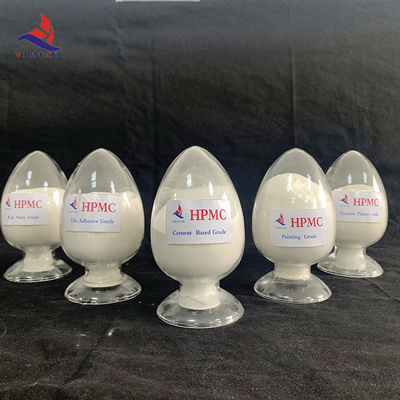The Role of HPMC Thickeners in Modern Industries
Hydroxypropyl Methylcellulose (HPMC) is a versatile cellulose derivative that has found extensive applications across various industries, particularly as a thickening agent. This water-soluble polymer has gained popularity due to its ability to modify the viscosity and texture of formulations, making it an essential ingredient in products ranging from food and pharmaceuticals to cosmetics and construction materials.
The Role of HPMC Thickeners in Modern Industries
In the pharmaceutical industry, HPMC serves as a crucial excipient in drug formulations. It is commonly used in tablet and capsule production, where it aids in controlling the release of active ingredients. By adjusting the viscosity and gel strength of the formulation, HPMC can help in achieving a targeted release profile, ensuring the medication is delivered effectively in the body. Furthermore, HPMC is often employed in topical formulations, such as creams and gels, where it provides a smooth texture and enhances the product's adhesion to the skin.
hpmc thickener

The cosmetic industry also benefits significantly from HPMC thickeners. They are widely used in lotions, creams, shampoos, and conditioners, where they help to stabilize emulsions and improve the product's sensory attributes. Consumers today are increasingly looking for products that provide a luxurious feel, and the use of HPMC helps formulators achieve that desired silky texture. Moreover, because HPMC is derived from natural cellulose, it aligns well with the growing trend toward natural and eco-friendly products, making it an appealing choice for consumers.
Another area where HPMC thickener shines is in the construction industry. It is utilized in various applications, including tile adhesives, paint formulations, and wall coatings. HPMC increases the viscosity of these formulations, which enhances their application properties, allowing for better spreadability and workability. Furthermore, its water-retention abilities help prevent the rapid drying of materials, ensuring better adhesion and reducing the risk of cracks and defects in finished products.
One of the notable features of HPMC is its non-toxic and biodegradable nature, which makes it a safe choice for various applications. It does not contain allergens and is gluten-free, appealing to health-conscious consumers. As industries continue to innovate and evolve, the demand for safer, sustainable ingredients like HPMC is expected to grow.
In conclusion, HPMC thickeners play a pivotal role in enhancing the functionality and appeal of products across multiple sectors. Whether in foods that require improved texture, pharmaceuticals needing controlled release, cosmetics offering smooth application, or construction materials that demand durability, HPMC provides an effective solution. As sustainability and consumer safety become more pressing issues, the relevance of HPMC thickeners in various industrial applications is likely to increase, establishing them as a fundamental ingredient in the pursuit of high-quality products.
-
Premium Detergent Grade HPMC Hydroxypropyl Methylcellulose: Superior Thickening & StabilityNewsAug.31,2025
-
HEC 100000 Hydroxyethylcellulose for Paint | Superior ThickeningNewsAug.30,2025
-
Wall Putty Rdp Powder Packaging DesignNewsAug.29,2025
-
Introduction to Hpmc Hydroxypropyl Methyl CellulosNewsAug.29,2025
-
Hpmc Industri Grade IntegrationNewsAug.29,2025
-
How to Choose the Right Construction AdhesiveNewsAug.29,2025




